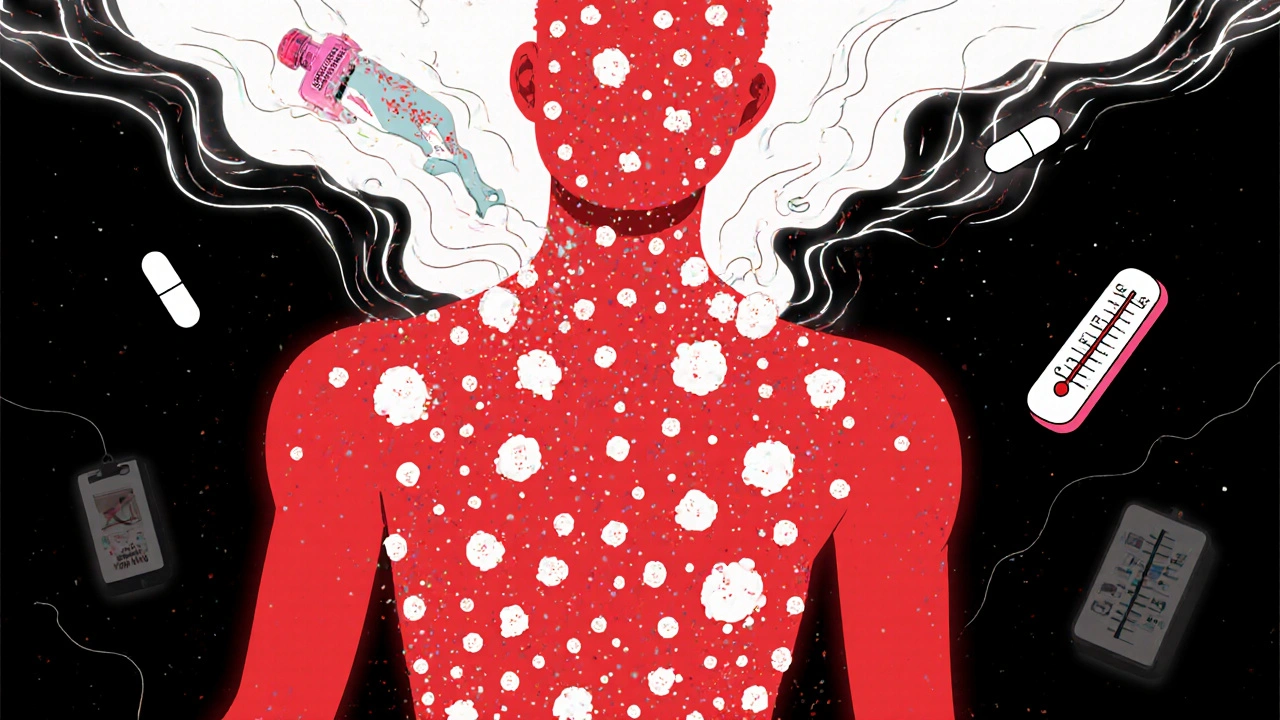Medication Side Effect: What You Need to Know About Reactions, Risks, and Real-Life Cases
When you take a pill, your body doesn’t just react to the medicine—it reacts to everything around it. A medication side effect, an unintended reaction to a drug that isn’t the intended therapeutic outcome. Also known as adverse drug reaction, it’s not always a sign something’s wrong—it’s often just how your system responds to the chemistry. But when a side effect turns dangerous, it’s not just inconvenient. It’s life-threatening. That’s why understanding the difference between a common side effect and a true allergic reaction matters more than you think. Many people say they’re "allergic" to penicillin because they got a rash once, but studies show over 90% of those people aren’t actually allergic. Mislabeling leads to worse drugs, higher costs, and avoidable risks.
Side effects don’t happen in a vacuum. They’re shaped by what else you’re taking. A drug interaction, when two or more medications affect each other’s behavior in the body can turn a harmless pill into a hazard. Caffeine can make warfarin less effective. Gabapentin and opioids together can slow your breathing to a dangerous level. Even something as simple as alcohol with trimethoprim can wreck your recovery. These aren’t rare cases—they’re everyday risks that doctors don’t always warn you about. And when you’re mixing over-the-counter meds with prescriptions, like double-dosing on acetaminophen in kids, the danger multiplies fast.
Then there’s the allergic drug reaction, a true immune system response that can cause hives, swelling, or anaphylaxis. It’s not a headache or nausea. It’s your body attacking itself. And confusing it with a side effect can mean you’re denied life-saving treatments later. If you think you’re allergic to a drug, get tested—not just told. You might be avoiding a medication you could safely use.
Some side effects are predictable. Others sneak up on you. Metoprolol might lower your blood pressure but also affect your sex life. Birth control pills like Yasmin help with acne but can cause mood swings. Even something as basic as iron supplements can cause stomach pain so bad you quit taking them. The key isn’t avoiding meds—it’s knowing what to watch for, when to call your doctor, and how to track what’s normal versus what’s not.
What you’ll find below isn’t a list of scary stories. It’s a practical collection of real cases, clear comparisons, and actionable steps. From how to check active ingredients in children’s medicine to why generic drugs can still cause side effects, these posts cut through the noise. You’ll learn how to spot dangerous interactions before they happen, understand why your body reacts the way it does, and take control of your treatment—not the other way around.
Acute Generalized Exanthematous Pustulosis (AGEP): What You Need to Know About This Rapid-Onset Drug Rash
AGEP is a rare but serious drug rash that causes sudden, widespread pustules on red skin. It requires immediate discontinuation of the triggering medication and often resolves within two weeks. Learn the signs, causes, and treatment options.
More
